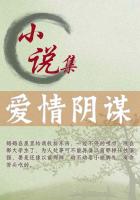I landed in London on a wintry autumn evening. It was dark and raining, and I saw more fog and mud in a minute than I had seen in a year. I walked from the Custom House to the Monument before I found a coach; and although the very house-fronts, looking on the swollen gutters, were like old friends to me, I could not but admit that they were very dingy friends.
I have often remarked—I suppose everybody has—that one's going away from a familiar place, would seem to be the signal for change in it. As I looked out of the coach window, and observed that an old house on Fish-street Hill, which had stood untouched by painter, carpenter, or bricklayer, for a century, had been pulled down in my absence; and that a neighbouring street, of time-honoured insalubrity and inconvenience, was being drained and widened; I half expected to find St. Paul's Cathedral looking older.
For some changes in the fortunes of my friends, I was prepared. My aunt had long been re-established at Dover, and Traddles had begun to get into some little practice at the Bar, in the very first term after my departure. He had chambers in Gray's Inn, now; and had told me, in his last letters, that he was not without hopes of being soon united to the dearest girl in the world.
They expected me home before Christmas; but had no idea of my returning so soon. I had purposely misled them, that I might have the pleasure of taking them by surprise. And yet, I was perverse enough to feel a chill and disappointment in receiving no welcome, and rattling, alone and silent, through the misty streets.
The well-known shops, however, with their cheerful lights, did something for me; and when I alighted at the door of the Gray's Inn Coffee-house, I had recovered my spirits. It recalled, at first, that so-different time when I had put up at the Golden Cross, and reminded me of the changes that had come to pass since then; but that was natural.
‘Do you know where Mr. Traddles lives in the Inn?’I asked the waiter, as I warmed myself by the coffee-room fire.
‘Holborn Court, sir. Number two.’
‘Mr. Traddles has a rising reputation among the lawyers, I believe?’said I.
‘Well, sir,’returned the waiter,‘probably he has, sir; but I am not aware of it myself.’
This waiter, who was middle-aged and spare, looked for help to a waiter of more authority—a stout, potential old man, with a double chin, in black breeches and stockings, who came out of a place like a churchwarden's pew, at the end of the coffee-room, where he kept company with a cash-box, a Directory, a Law-list, and other books and papers.
‘Mr. Traddles,’said the spare waiter.‘Number two in the Court.’
The potential waiter waved him away, and turned, gravely, to me.
‘I was inquiring,’said I,‘whether Mr. Traddles, at number two in the Court, has not a rising reputation among the lawyers?’
‘Never heard his name,’said the waiter, in a rich husky voice.
I felt quite apologetic for Traddles.
‘He's a young man, sure?’said the portentous waiter, fixing his eyes severely on me.‘How long has he been in the Inn?’
‘Not above three years,’said I.
The waiter, who I supposed had lived in his churchwarden's pew for forty years, could not pursue such an insignificant subject. He asked me what I would have for dinner?
I felt I was in England again, and really was quite cast down on Traddles's account. There seemed to be no hope for him. I meekly ordered a bit of fish and a steak, and stood before the fire musing on his obscurity.
As I followed the chief waiter with my eyes, I could not help thinking that the garden in which he had gradually blown to be the flower he was, was an arduous place to rise in. It had such a prescriptive, stiff-necked, long-established, solemn, elderly air. I glanced about the room, which had had its sanded floor sanded, no doubt, in exactly the same manner when the chief waiter was a boy—if he ever was a boy, which appeared improbable; and at the shining tables, where I saw myself reflected, in unruffled depths of old mahogany; and at the lamps, without a flaw in their trimming or cleaning; and at the comfortable green curtains, with their pure brass rods, snugly enclosing the boxes; and at the two large coal fires, brightly burning; and at the rows of decanters, burly as if with the consciousness of pipes of expensive old port wine below; and both England, and the law, appeared to me to be very difficult indeed to be taken by storm. I went up to my bedroom to change my wet clothes; and the vast extent of that old wainscoted apartment (which was over the archway leading to the Inn, I remember), and the sedate immensity of the four-post bedstead, and the indomitable gravity of the chests of drawers, all seemed to unite in sternly frowning on the fortunes of Traddles, or on any such daring youth. I came down again to my dinner; and even the slow comfort of the meal, and the orderly silence of the place—which was bare of guests, the Long Vacation not yet being over—were eloquent on the audacity of Traddles, and his small hopes of a livelihood for twenty years to come.
I had seen nothing like this since I went away, and it quite dashed my hopes for my friend. The chief waiter had had enough of me. He came near me no more; but devoted himself to an old gentleman in long gaiters, to meet whom a pint of special port seemed to come out of the cellar of its own accord, for he gave no order. The second waiter informed me, in a whisper, that this old gentleman was a retired conveyancer living in the Square, and worth a mint of money, which it was expected he would leave to his laundress's daughter; likewise that it was rumoured that he had a service of plate in a bureau, all tarnished with lying by, though more than one spoon and a fork had never yet been beheld in his chambers by mortal vision. By this time, I quite gave Traddles up for lost; and settled in my own mind that there was no hope for him.
Being very anxious to see the dear old fellow, nevertheless, I dispatched my dinner, in a manner not at all calculated to raise me in the opinion of the chief waiter, and hurried out by the back way. Number two in the Court was soon reached; and an inscription on the door-post informing me that Mr. Traddles occupied a set of chambers on the top storey, I ascended the staircase. A crazy old staircase I found it to be, feebly lighted on each landing by a club—headed little oil wick, dying away in a little dungeon of dirty glass.
In the course of my stumbling upstairs, I fancied I heard a pleasant sound of laughter; and not the laughter of an attorney or barrister, or attorney's clerk or barrister's clerk, but of two or three merry girls. Happening, however, as I stopped to listen, to put my foot in a hole where the Honourable Society of Gray's Inn had left a plank deficient, I fell down with some noise, and when I recovered my footing all was silent.
Groping my way more carefully, for the rest of the journey, my heart beat high when I found the outer door, which had Mr. TRADDLES painted on it, open. I knocked. A considerable scuffling within ensued, but nothing else. I therefore knocked again.
A small sharp-looking lad, half-footboy and half-clerk, who was very much out of breath, but who looked at me as if he defied me to prove it legally, presented himself.
‘Is Mr. Traddles within?’I said.
‘Yes, sir, but he's engaged.’
‘I want to see him.’
After a moment's survey of me, the sharp-looking lad decided to let me in; and opening the door wider for that purpose, admitted me, first, into a little closet of a hall, and next into a little sitting-room; where I came into the presence of my old friend (also out of breath), seated at a table, and bending over papers.
‘Good God!’cried Traddles, looking up.‘It's Copperfield!’and rushed into my arms, where I held him tight.
‘All well, my dear Traddles?’
‘All well, my dear, dear Copperfield, and nothing but good news!’
We cried with pleasure, both of us.
‘My dear fellow,’said Traddles, rumpling his hair in his excitement, which was a most unnecessary operation,‘my dearest Copperfield, my long-lost and most welcome friend, how glad I am to see you! How brown you are! How glad I am! Upon my life and honour, I never was so rejoiced, my beloved Copperfield, never!’
I was equally at a loss to express my emotions. I was quite unable to speak, at first.
‘My dear fellow!’said Traddles.‘And grown so famous! My glorious Copperfield! Good gracious me, WHEN did you come, WHERE have you come from, WHAT have you been doing?’
Never pausing for an answer to anything he said, Traddles, who had clapped me into an easy-chair by the fire, all this time impetuously stirred the fire with one hand, and pulled at my neck-kerchief with the other, under some wild delusion that it was a great-coat. Without putting down the poker, he now hugged me again; and I hugged him; and, both laughing, and both wiping our eyes, we both sat down, and shook hands across the hearth.
‘To think,’said Traddles,‘that you should have been so nearly coming home as you must have been, my dear old boy, and not at the ceremony!’
‘What ceremony, my dear Traddles?’
‘Good gracious me!’cried Traddles, opening his eyes in his old way.‘Didn't you get my last letter?’
‘Certainly not, if it referred to any ceremony.’
‘Why, my dear Copperfield,’said Traddles, sticking his hair upright with both hands, and then putting his hands on my knees,‘I am married!’
‘Married!’I cried joyfully.
‘Lord bless me, yes!’said Traddles—‘by the Reverend Horace—to Sophy—down in Devonshire. Why, my dear boy, she's behind the window curtain! Look here!’
To my amazement, the dearest girl in the world came at that same instant, laughing and blushing, from her place of concealment. And a more cheerful, amiable, honest, happy, bright-looking bride, I believe (as I could not help saying on the spot) the world never saw. I kissed her as an old acquaintance should, and wished them joy with all my might of heart.
‘Dear me,’said Traddles,‘what a delightful re-union this is! You are so extremely brown, my dear Copperfield! God bless my soul, how happy I am!’
‘And so am I,’said I.
‘And I am sure I am!’said the blushing and laughing Sophy.
‘We are all as happy as possible!’said Traddles.‘Even the girls are happy. Dear me, I declare I forgot them!’
‘Forgot?’said I.
‘The girls,’said Traddles.‘Sophy's sisters. They are staying with us. They have come to have a peep at London. The fact is, when—was it you that tumbled upstairs, Copperfield?’
‘It was,’said I, laughing.
‘Well then, when you tumbled upstairs,’said Traddles,‘I was romping with the girls. In point of fact, we were playing at Puss in the Corner. But as that wouldn't do in Westminster Hall, and as it wouldn't look quite professional if they were seen by a client, they decamped. And they are now—listening, I have no doubt,’said Traddles, glancing at the door of another room.
‘I am sorry,’said I, laughing afresh,‘to have occasioned such a dispersion.’
‘Upon my word,’rejoined Traddles, greatly delighted,‘if you had seen them running away, and running back again, after you had knocked, to pick up the combs they had dropped out of their hair, and going on in the maddest manner, you wouldn't have said so. My love, will you fetch the girls?’
Sophy tripped away, and we heard her received in the adjoining room with a peal of laughter.
‘Really musical, isn't it, my dear Copperfield?’said Traddles.‘It's very agreeable to hear. It quite lights up these old rooms. To an unfortunate bachelor of a fellow who has lived alone all his life, you know, it's positively delicious. It's charming. Poor things, they have had a great loss in Sophy—who, I do assure you, Copperfield is, and ever was, the dearest girl!—and it gratifies me beyond expression to find them in such good spirits. The society of girls is a very delightful thing, Copperfield. It's not professional, but it's very delightful.’
Observing that he slightly faltered, and comprehending that in the goodness of his heart he was fearful of giving me some pain by what he had said, I expressed my concurrence with a heartiness that evidently relieved and pleased him greatly.
‘But then,’said Traddles,‘our domestic arrangements are, to say the truth, quite unprofessional altogether, my dear Copperfield. Even Sophy's being here, is unprofessional. And we have no other place of abode. We have put to sea in a cockboat, but we are quite prepared to rough it. And Sophy's an extraordinary manager! You'll be surprised how those girls are stowed away. I am sure I hardly know how it's done!’
‘Are many of the young ladies with you?’I inquired.
‘The eldest, the Beauty is here,’said Traddles, in a low confidential voice,‘Caroline. And Sarah's here—the one I mentioned to you as having something the matter with her spine, you know. Immensely better! And the two youngest that Sophy educated are with us. And Louisa's here.’
‘Indeed!’cried I.
‘Yes,’said Traddles.‘Now the whole set—I mean the chambers—is only three rooms; but Sophy arranges for the girls in the most wonderful way, and they sleep as comfortably as possible. Three in that room,’said Traddles, pointing.‘Two in that.’
I could not help glancing round, in search of the accommodation remaining for Mr. and Mrs. Traddles. Traddles understood me.
‘Well!’said Traddles,‘we are prepared to rough it, as I said just now, and we did improvise a bed last week, upon the floor here. But there's a little room in the roof—a very nice room, when you're up there—which Sophy papered herself, to surprise me; and that's our room at present. It's a capital little gipsy sort of place. There's quite a view from it.’
‘And you are happily married at last, my dear Traddles!’said I.‘How rejoiced I am!’
‘Thank you, my dear Copperfield,’said Traddles, as we shook hands once more.‘Yes, I am as happy as it's possible to be. There's your old friend, you see,’said Traddles, nodding triumphantly at the flower-pot and stand;‘and there's the table with the marble top! All the other furniture is plain and serviceable, you perceive. And as to plate, Lord bless you, we haven't so much as a tea-spoon.’
‘All to be earned?’said I, cheerfully.
‘Exactly so,’replied Traddles,‘all to be earned. Of course we have something in the shape of tea-spoons, because we stir our tea. But they're Britannia metal.’
‘The silver will be the brighter when it comes,’said I.
‘The very thing we say!’cried Traddles.‘You see, my dear Copperfield,’falling again into the low confidential tone,‘after I had delivered my argument in DOE dem. JIPES versus WIGZIELL, which did me great service with the profession, I went down into Devonshire, and had some serious conversation in private with the Reverend Horace. I dwelt upon the fact that Sophy—who I do assure you, Copperfield, is the dearest girl!—’
‘I am certain she is!’said I.
‘She is, indeed!’rejoined Traddles.‘But I am afraid I am wandering from the subject. Did I mention the Reverend Horace?’
‘You said that you dwelt upon the fact—’
‘True! Upon the fact that Sophy and I had been engaged for a long period, and that Sophy, with the permission of her parents, was more than content to take me—in short,’said Traddles, with his old frank smile,‘on our present Britannia-metal footing. Very well. I then proposed to the Reverend Horace—who is a most excellent clergyman, Copperfield, and ought to be a Bishop; or at least ought to have enough to live upon, without pinching himself—that if I could turn the corner, say of two hundred and fifty pounds, in one year; and could see my way pretty clearly to that, or something better, next year; and could plainly furnish a little place like this, besides; then, and in that case, Sophy and I should be united. I took the liberty of representing that we had been patient for a good many years; and that the circumstance of Sophy's being extraordinarily useful at home, ought not to operate with her affectionate parents, against her establishment in life—don't you see?’
‘Certainly it ought not,’said I.
‘I am glad you think so, Copperfield,’rejoined Traddles,‘because, without any imputation on the Reverend Horace, I do think parents, and brothers, and so forth, are sometimes rather selfish in such cases. Well! I also pointed out, that my most earnest desire was, to be useful to the family; and that if I got on in the world, and anything should happen to him—I refer to the Reverend Horace—’
‘I understand,’said I.
‘—Or to Mrs. Crewler—it would be the utmost gratification of my wishes, to be a parent to the girls. He replied in a most admirable manner, exceedingly flattering to my feelings, and undertook to obtain the consent of Mrs. Crewler to this arrangement. They had a dreadful time of it with her. It mounted from her legs into her chest, and then into her head—’
‘What mounted?’I asked.
‘Her grief,’replied Traddles, with a serious look.‘Her feelings generally. As I mentioned on a former occasion, she is a very superior woman, but has lost the use of her limbs. Whatever occurs to harass her, usually settles in her legs; but on this occasion it mounted to the chest, and then to the head, and, in short, pervaded the whole system in a most alarming manner. However, they brought her through it by unremitting and affectionate attention; and we were married yesterday six weeks. You have no idea what a Monster I felt, Copperfield, when I saw the whole family crying and fainting away in every direction! Mrs. Crewler couldn't see me before we left—couldn't forgive me, then, for depriving her of her child—but she is a good creature, and has done so since. I had a delightful letter from her, only this morning.’
‘And in short, my dear friend,’said I,‘you feel as blest as you deserve to feel!’
‘Oh! That's your partiality!’laughed Traddles.‘But, indeed, I am in a most enviable state. I work hard, and read Law insatiably. I get up at five every morning, and don't mind it at all. I hide the girls in the daytime, and make merry with them in the evening. And I assure you I am quite sorry that they are going home on Tuesday, which is the day before the first day of Michaelmas Term. But here,’said Traddles, breaking off in his confidence, and speaking aloud,‘ARE the girls! Mr. Copperfield, Miss Crewler—Miss Sarah—Miss Louisa—Margaret and Lucy!’
They were a perfect nest of roses; they looked so wholesome and fresh. They were all pretty, and Miss Caroline was very handsome; but there was a loving, cheerful, fireside quality in Sophy's bright looks, which was better than that, and which assured me that my friend had chosen well. We all sat round the fire; while the sharp boy, who I now divined had lost his breath in putting the papers out, cleared them away again, and produced the tea-things. After that, he retired for the night, shutting the outer door upon us with a bang. Mrs. Traddles, with perfect pleasure and composure beaming from her household eyes, having made the tea, then quietly made the toast as she sat in a corner by the fire.
She had seen Agnes, she told me while she was toasting.‘Tom’had taken her down into Kent for a wedding trip, and there she had seen my aunt, too; and both my aunt and Agnes were well, and they had all talked of nothing but me.‘Tom’had never had me out of his thoughts, she really believed, all the time I had been away.‘Tom’was the authority for everything.‘Tom’was evidently the idol of her life; never to be shaken on his pedestal by any commotion; always to be believed in, and done homage to with the whole faith of her heart, come what might.
The deference which both she and Traddles showed towards the Beauty, pleased me very much. I don't know that I thought it very reasonable; but I thought it very delightful, and essentially a part of their character. If Traddles ever for an instant missed the tea-spoons that were still to be won, I have no doubt it was when he handed the Beauty her tea. If his sweet-tempered wife could have got up any self-assertion against anyone, I am satisfied it could only have been because she was the Beauty's sister. A few slight indications of a rather petted and capricious manner, which I observed in the Beauty, were manifestly considered, by Traddles and his wife, as her birthright and natural endowment. If she had been born a Queen Bee, and they labouring Bees, they could not have been more satisfied of that.
But their self-forgetfulness charmed me. Their pride in these girls, and their submission of themselves to all their whims, was the pleasantest little testimony to their own worth I could have desired to see. If Traddles were addressed as‘a darling’, once in the course of that evening; and besought to bring something here, or carry something there, or take something up, or put something down, or find something, or fetch something, he was so addressed, by one or other of his sisters-in-law, at least twelve times in an hour. Neither could they do anything without Sophy. Somebody's hair fell down, and nobody but Sophy could put it up. Somebody forgot how a particular tune went, and nobody but Sophy could hum that tune right. Somebody wanted to recall the name of a place in Devonshire, and only Sophy knew it. Something was wanted to be written home, and Sophy alone could be trusted to write before breakfast in the morning. Somebody broke down in a piece of knitting, and no one but Sophy was able to put the defaulter in the right direction. They were entire mistresses of the place, and Sophy and Traddles waited on them. How many children Sophy could have taken care of in her time, I can't imagine; but she seemed to be famous for knowing every sort of song that ever was addressed to a child in the English tongue; and she sang dozens to order with the clearest little voice in the world, one after another (every sister issuing directions for a different tune, and the Beauty generally striking in last), so that I was quite fascinated. The best of all was, that, in the midst of their exactions, all the sisters had a great tenderness and respect both for Sophy and Traddles. I am sure, when I took my leave, and Traddles was coming out to walk with me to the coffee-house, I thought I had never seen an obstinate head of hair, or any other head of hair, rolling about in such a shower of kisses.
Altogether, it was a scene I could not help dwelling on with pleasure, for a long time after I got back and had wished Traddles good night. If I had beheld a thousand roses blowing in a top set of chambers, in that withered Gray's Inn, they could not have brightened it half so much. The idea of those Devonshire girls, among the dry law-stationers and the attorneys' offices; and of the tea and toast, and children's songs, in that grim atmosphere of pounce and parchment, red-tape, dusty wafers, ink-jars, brief and draft paper, law reports, writs, declarations, and bills of costs; seemed almost as pleasantly fanciful as if I had dreamed that the Sultan's famous family had been admitted on the roll of attorneys, and had brought the talking bird, the singing tree, and the golden water into Gray's Inn Hall. Somehow, I found that I had taken leave of Traddles for the night, and come back to the coffee-house, with a great change in my despondency about him. I began to think he would get on, in spite of all the many orders of chief waiters in England.
Drawing a chair before one of the coffee-room fires to think about him at my leisure, I gradually fell from the consideration of his happiness to tracing prospects in the live-coals, and to thinking, as they broke and changed, of the principal vicissitudes and separations that had marked my life. I had not seen a coal fire, since I had left England three years ago: though many a wood fire had I watched, as it crumbled into hoary ashes, and mingled with the feathery heap upon the hearth, which not inaptly figured to me, in my despondency, my own dead hopes.
I could think of the past now, gravely, but not bitterly; and could contemplate the future in a brave spirit. Home, in its best sense, was for me no more. She in whom I might have inspired a dearer love, I had taught to be my sister. She would marry, and would have new claimants on her tenderness; and in doing it, would never know the love for her that had grown up in my heart. It was right that I should pay the forfeit of my headlong passion. What I reaped, I had sown.
I was thinking. And had I truly disciplined my heart to this, and could I resolutely bear it, and calmly hold the place in her home which she had calmly held in mine,—when I found my eyes resting on a countenance that might have arisen out of the fire, in its association with my early remembrances.
Little Mr. Chillip the Doctor, to whose good offices I was indebted in the very first chapter of this history, sat reading a newspaper in the shadow of an opposite corner. He was tolerably stricken in years by this time; but, being a mild, meek, calm little man, had worn so easily, that I thought he looked at that moment just as he might have looked when he sat in our parlour, waiting for me to be born.
Mr. Chillip had left Blunderstone six or seven years ago, and I had never seen him since. He sat placidly perusing the newspaper, with his little head on one side, and a glass of warm sherry negus at his elbow. He was so extremely conciliatory in his manner that he seemed to apologize to the very newspaper for taking the liberty of reading it.
I walked up to where he was sitting, and said,‘How do you do, Mr. Chillip?’
He was greatly fluttered by this unexpected address from a stranger, and replied, in his slow way,‘I thank you, sir, you are very good. Thank you, sir. I hope YOU are well.’
‘You don't remember me?’said I.
‘Well, sir,’returned Mr. Chillip, smiling very meekly, and shaking his head as he surveyed me,‘I have a kind of an impression that something in your countenance is familiar to me, sir; but I couldn't lay my hand upon your name, really.’
‘And yet you knew it, long before I knew it myself,’I returned.
‘Did I indeed, sir?’said Mr. Chillip.‘Is it possible that I had the honour, sir, of officiating when—?’
‘Yes,’said I.
‘Dear me!’cried Mr. Chillip.‘But no doubt you are a good deal changed since then, sir?’
‘Probably,’said I.
‘Well, sir,’observed Mr. Chillip,‘I hope you'll excuse me, if I am compelled to ask the favour of your name?’
On my telling him my name, he was really moved. He quite shook hands with me—which was a violent proceeding for him, his usual course being to slide a tepid little fish-slice, an inch or two in advance of his hip, and evince the greatest discomposure when anybody grappled with it. Even now, he put his hand in his coat-pocket as soon as he could disengage it, and seemed relieved when he had got it safe back.
‘Dear me, sir!’said Mr. Chillip, surveying me with his head on one side.‘And it's Mr. Copperfield, is it? Well, sir, I think I should have known you, if I had taken the liberty of looking more closely at you. There's a strong resemblance between you and your poor father, sir.’
‘I never had the happiness of seeing my father,’I observed.
‘Very true, sir,’said Mr. Chillip, in a soothing tone.‘And very much to be deplored it was, on all accounts! We are not ignorant, sir,’said Mr. Chillip, slowly shaking his little head again,‘down in our part of the country, of your fame. There must be great excitement here, sir,’said Mr. Chillip, tapping himself on the forehead with his forefinger.‘You must find it a trying occupation, sir!’
‘What is your part of the country now?’I asked, seating myself near him.
‘I am established within a few miles of Bury St. Edmund's, sir,’said Mr. Chillip.‘Mrs. Chillip, coming into a little property in that neighbourhood, under her father's will, I bought a practice down there, in which you will be glad to hear I am doing well. My daughter is growing quite a tall lass now, sir,’said Mr. Chillip, giving his little head another little shake.‘Her mother let down two tucks in her frocks only last week. Such is time, you see, sir!’
As the little man put his now empty glass to his lips, when he made this reflection, I proposed to him to have it refilled, and I would keep him company with another.‘Well, sir,’he returned, in his slow way,‘it's more than I am accustomed to; but I can't deny myself the pleasure of your conversation. It seems but yesterday that I had the honour of attending you in the measles. You came through them charmingly, sir!’
I acknowledged this compliment, and ordered the negus, which was soon produced.‘Quite an uncommon dissipation!’said Mr. Chillip, stirring it,‘but I can't resist so extraordinary an occasion. You have no family, sir?’
I shook my head.
‘I was aware that you sustained a bereavement, sir, some time ago,’said Mr. Chillip.‘I heard it from your father-in-law's sister. Very decided character there, sir?’
‘Why, yes,’said I,‘decided enough. Where did you see her, Mr. Chillip?’
‘Are you not aware, sir,’returned Mr. Chillip, with his placidest smile,‘that your father-in-law is again a neighbour of mine?’
‘No,’said I.
‘He is indeed, sir!’said Mr. Chillip.‘Married a young lady of that part, with a very good little property, poor thing.—And this action of the brain now, sir? Don't you find it fatigue you?’said Mr. Chillip, looking at me like an admiring Robin.
I waived that question, and returned to the Murdstones.‘I was aware of his being married again. Do you attend the family?’I asked.
‘Not regularly. I have been called in,’he replied.‘Strong phrenological developments of the organ of firmness, in Mr. Murdstone and his sister, sir.’
I replied with such an expressive look, that Mr. Chillip was emboldened by that, and the negus together, to give his head several short shakes, and thoughtfully exclaim,‘Ah, dear me! We remember old times, Mr. Copperfield!’
‘And the brother and sister are pursuing their old course, are they?’said I.
‘Well, sir,’replied Mr. Chillip,‘a medical man, being so much in families, ought to have neither eyes nor ears for anything but his profession. Still, I must say, they are very severe, sir: both as to this life and the next.’
‘The next will be regulated without much reference to them, I dare say,’I returned:‘what are they doing as to this?’
Mr. Chillip shook his head, stirred his negus, and sipped it.
‘She was a charming woman, sir!’he observed in a plaintive manner.
‘The present Mrs. Murdstone?’
A charming woman indeed, sir,’said Mr. Chillip;‘as amiable, I am sure, as it was possible to be! Mrs. Chillip's opinion is, that her spirit has been entirely broken since her marriage, and that she is all but melancholy mad. And the ladies,’observed Mr. Chillip, timorously,‘are great observers, sir.’
‘I suppose she was to be subdued and broken to their detestable mould, Heaven help her!’said I.‘And she has been.’
‘Well, sir, there were violent quarrels at first, I assure you,’said Mr. Chillip;‘but she is quite a shadow now. Would it be considered forward if I was to say to you, sir, in confidence, that since the sister came to help, the brother and sister between them have nearly reduced her to a state of imbecility?’
I told him I could easily believe it.
‘I have no hesitation in saying,’said Mr. Chillip, fortifying himself with another sip of negus,‘between you and me, sir, that her mother died of it—or that tyranny, gloom, and worry have made Mrs. Murdstone nearly imbecile. She was a lively young woman, sir, before marriage, and their gloom and austerity destroyed her. They go about with her, now, more like her keepers than her husband and sister-in-law. That was Mrs. Chillip's remark to me, only last week. And I assure you, sir, the ladies are great observers. Mrs. Chillip herself is a great observer!’
‘Does he gloomily profess to be (I am ashamed to use the word in such association) religious still?’I inquired.
‘You anticipate, sir,’said Mr. Chillip, his eyelids getting quite red with the unwonted stimulus in which he was indulging.‘One of Mrs. Chillip's most impressive remarks. Mrs. Chillip,’he proceeded, in the calmest and slowest manner,‘quite electrified me, by pointing out that Mr. Murdstone sets up an image of himself, and calls it the Divine Nature. You might have knocked me down on the flat of my back, sir, with the feather of a pen, I assure you, when Mrs. Chillip said so. The ladies are great observers, sir?’
‘Intuitively,’said I, to his extreme delight.
‘I am very happy to receive such support in my opinion, sir,’he rejoined.‘It is not often that I venture to give a non-medical opinion, I assure you. Mr. Murdstone delivers public addresses sometimes, and it is said,—in short, sir, it is said by Mrs. Chillip,—that the darker tyrant he has lately been, the more ferocious is his doctrine.’
‘I believe Mrs. Chillip to be perfectly right,’said I.
‘Mrs. Chillip does go so far as to say,’pursued the meekest of little men, much encouraged,‘that what such people miscall their religion, is a vent for their bad humours and arrogance. And do you know I must say, sir,’he continued, mildly laying his head on one side,‘that I DON’T find authority for Mr. and Miss Murdstone in the New Testament?’
‘I never found it either!’said I.
‘In the meantime, sir,’said Mr. Chillip,‘they are much disliked; and as they are very free in consigning everybody who dislikes them to perdition, we really have a good deal of perdition going on in our neighbourhood! However, as Mrs. Chillip says, sir, they undergo a continual punishment; for they are turned inward, to feed upon their own hearts, and their own hearts are very bad feeding. Now, sir, about that brain of yours, if you'll excuse my returning to it. Don't you expose it to a good deal of excitement, sir?’
I found it not difficult, in the excitement of Mr. Chillip's own brain, under his potations of negus, to divert his attention from this topic to his own affairs, on which, for the next half-hour, he was quite loquacious; giving me to understand, among other pieces of information, that he was then at the Gray's Inn Coffee-house to lay his professional evidence before a Commission of Lunacy, touching the state of mind of a patient who had become deranged from excessive drinking.‘And I assure you, sir,’he said,‘I am extremely nervous on such occasions. I could not support being what is called Bullied, sir. It would quite unman me. Do you know it was some time before I recovered the conduct of that alarming lady, on the night of your birth, Mr. Copperfield?’
I told him that I was going down to my aunt, the Dragon of that night, early in the morning; and that she was one of the most tender-hearted and excellent of women, as he would know full well if he knew her better. The mere notion of the possibility of his ever seeing her again, appeared to terrify him. He replied with a small pale smile,‘Is she so, indeed, sir? Really?’and almost immediately called for a candle, and went to bed, as if he were not quite safe anywhere else. He did not actually stagger under the negus; but I should think his placid little pulse must have made two or three more beats in a minute, than it had done since the great night of my aunt's disappointment, when she struck at him with her bonnet.
Thoroughly tired, I went to bed too, at midnight; passed the next day on the Dover coach; burst safe and sound into my aunt's old parlour while she was at tea (she wore spectacles now); and was received by her, and Mr. Dick, and dear old Peggotty, who acted as housekeeper, with open arms and tears of joy. My aunt was mightily amused, when we began to talk composedly, by my account of my meeting with Mr. Chillip, and of his holding her in such dread remembrance; and both she and Peggotty had a great deal to say about my poor mother's second husband, and‘that murdering woman of a sister’,—on whom I think no pain or penalty would have induced my aunt to bestow any Christian or Proper Name, or any other designation.













